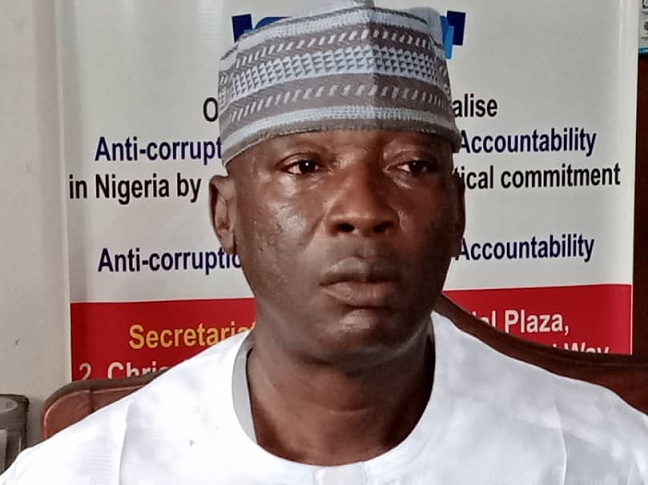Sixty-four years have elapsed since the Union Jack descended and Nigeria ostensibly ascended into sovereign autonomy. Yet, in 2025, what stands before the global community is not a resplendent post-colonial phoenix, but a fatigued leviathan staggering beneath the weight of its own unfulfilled promises. In the realm of geopolitical maturity, age ought to signify enlightenment, resilience, and refined national ethos. But in Nigeria’s case, age has become a ceremonial abstraction—an arithmetic of years devoid of evolution, an enumeration of anniversaries sans advancement.
The existential paradox is acute: a nation so rich in human and natural capital, yet emaciated in its institutional integrity. To borrow the words of former U.S. President Barack Obama, “Africa doesn’t need strongmen, it needs strong institutions.” Alas, Nigeria remains imprisoned in the vice of strongmen syndrome—where personality eclipses policy, and political theatre supplants technocratic governance.
The comparative litmus test is damning. Rwanda, scarcely three decades removed from cataclysmic genocide, now beams as a paragon of post-conflict regeneration. Under the austere discipline of Paul Kagame, Kigali’s sanitation mirrors its civic sense, and its fiscal rectitude outshines its past bloodshed. “Africa’s story has been written by others,” Kagame asserted, “we need to own it.” Nigeria, by contrast, has pawned her narrative to a revolving cabal of elites who treat governance as inheritance and the treasury as an ancestral estate.
Meanwhile, the United Arab Emirates—ten years Nigeria’s junior—has transfigured arid desert into a citadel of architectural ambition and infrastructural splendor. Nigeria, with greater oil endowments, continues to import refined petroleum products while its refineries rust into archeological relics. As former U.K. Prime Minister David Cameron so abrasively yet accurately remarked, Nigeria remains “fantastically corrupt.” Here, corruption is not an anomaly; it is the protocol.
Singapore, born in temporal proximity to Nigeria, has soared from third-world despair to first-world prestige. Lee Kuan Yew’s iron governance and moral intolerance for mediocrity engineered a civic renaissance. “The task of the leaders must be to set an example,” he once insisted. Nigeria’s leaders have, tragically, normalized dysfunction—where mediocrity is rewarded, and meritocracy gasps for air.
The present dispensation led by President Bola Ahmed Tinubu promised to govern with “equity and transparency.” Yet, equity remains a theoretical illusion and transparency is cloaked in bureaucratic opacity. The Nigerian youth—vibrant, educated, and perennially unemployed—navigate a state that has become a treadmill: perpetual motion without forward progress. Their brilliance finds validation not at home, but in the diasporic embrace of more functional nations. The brain drain is not episodic—it is existential.
Jerry Rawlings of Ghana once opined that “Nigeria is too blessed to fail, yet it continues to mismanage its fortune.” His lament was not of rivalry, but of reverence bruised by reality. Despite its size and endowment, Nigeria imports more than it exports—except in suffering. The country exports hope by day and imports disillusionment by night. Its democracy is neither deliberative nor developmental; it is transactional, tribalized, and perpetually volatile.
As Hillary Clinton once noted, “Nigeria has squandered its oil wealth through mismanagement and corruption.” In the crucible of governance, Nigeria has chosen to melt rather than mold. The rule of law is malleable, public service a euphemism for self-service, and elections are auctioned to the highest bidder. The electoral process no longer sanctifies the voice of the people—it amplifies the purse of the powerful.
What, then, does Nigeria’s chronological seniority signify in a world that measures relevance by impact, not age? The juxtaposition with smaller, younger, and more visionary nations exposes the hollowness of Nigeria’s ceremonial pride. The naira is in a state of chronic attrition. Infrastructure collapses like metaphorical sandcastles. The public education system limps along like an abandoned child. Meanwhile, security operatives oscillate between combating bandits and appeasing political overlords.
Nigeria at 64 should be a statesman; instead, it is a street preacher—passionate but powerless. It invokes prayers where it should enact policies. It hosts summits but resists reform. It celebrates independence while its citizens remain economically incarcerated. Age, stripped of progress, becomes a mockery—a rusted medal worn by a sprinter who never left the starting block.
Even within the African continent, the Nigerian mythos wanes. Once the presumed juggernaut of the region, it now stumbles under the weight of parochialism and myopic leadership. It is a giant in narrative but a pygmy in execution. The “Giant of Africa” moniker now elicits not pride but pity.
In truth, Nigeria has become a paradoxical relic—chronologically old, yet developmentally stunted; historically significant, yet contemporarily peripheral. It drifts like a ship with no rudder, celebrating years while hemorrhaging relevance. Its anthem proclaims unity and faith, but the streets echo dissonance and despair.
The question remains: can a nation truly be old if it has never grown? Nigeria’s temporal age may be 64, but its civic maturity remains embryonic. In a world accelerating into digital frontiers, space economies, and renewable revolutions, Nigeria debates tribal quotas, political zoning, and fuel subsidies. It is a nation fighting 21st-century battles with 20th-century tools and pre-colonial mindsets.
History may record Nigeria as a sovereign state since 1960, but sovereignty without self-mastery is delusion. Until governance becomes service and politics becomes purpose, Nigeria’s birthdays will remain tragic milestones—markers of lost potential, rather than monuments of achieved greatness.
Time has indeed told. But legacy, it seems, still waits.
– Inah Boniface Ocholi writes from Ayah – Igalamela/Odolu LGA, Kogi state.
08152094428 (SMS Only)




